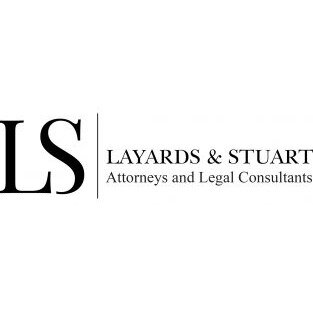Best Employment Benefits & Executive Compensation Lawyers in Colombo
Share your needs with us, get contacted by law firms.
Free. Takes 2 min.
List of the best lawyers in Colombo, Sri Lanka
About Employment Benefits & Executive Compensation Law in Colombo, Sri Lanka
Employment Benefits & Executive Compensation Law in Colombo, Sri Lanka, governs the framework for the remuneration packages provided to employees and executives. This field of law includes the various incentives and benefits offered over and above ordinary salary, such as bonuses, stock options, retirement benefits, and health plans. As Colombo continues to emerge as a regional hub for business, the structuring and regulation of these benefits are critical for ensuring legal compliance and fostering a productive working environment.
Why You May Need a Lawyer
There are several instances where individuals or companies may require legal assistance in matters related to Employment Benefits & Executive Compensation:
- Negotiating complex executive contracts.
- Addressing disputes over compensation or benefits packages.
- Ensuring compliance with local and international employment law standards.
- Structuring compensation packages during mergers or acquisitions.
- Adapting or creating employee benefit plans in line with regulatory changes.
Legal professionals can provide expert advice, mitigate risks, and help navigate the complexities of employment benefits effectively.
Local Laws Overview
Several key laws and regulations govern Employment Benefits & Executive Compensation in Colombo:
- Shop and Office Employees Act: This law governs employment terms for shop and office workers including hours of work, leave entitlements, and other employment conditions.
- Wages Boards Ordinance: Establishes wage standards and determines minimum wages for various sectors.
- Payment of Gratuity Act: Specifies gratuity entitlements for workers upon termination after five years of service.
- Employees’ Provident Fund (EPF) Act: Mandates contributions by employers and employees for retirement savings.
- Employees' Trust Fund (ETF) Act: Provides further social security for workers through employer contributions.
Understanding these laws is crucial for both employers and employees to ensure compliance and protect their interests.
Frequently Asked Questions
What is included under employment benefits in Sri Lanka?
Employment benefits typically include health insurance, retirement plans like EPF and ETF, leave entitlements, bonuses, and other incentives.
How can I ensure that my executive compensation package is fair and compliant?
Seeking legal guidance can ensure that your compensation package meets legal standards, aligns with market practices, and adequately reflects your responsibilities and performance.
What are my rights regarding gratuity payments?
Employees are entitled to gratuity payments after five years of continuous service upon termination, barring instances such as misconduct or resignation without notice.
Can an employer change the terms of a benefits package without my consent?
Typically, changes to benefits packages require consultation and agreement, particularly if specified within an employment contract.
How are disputes regarding executive compensation typically resolved?
Dispute resolution mechanisms can range from internal mediation to formal legal proceedings, depending on the nature of the dispute and contractual agreements.
What are stock options, and how are they managed in Colombo?
Stock options offer employees the right to purchase company shares at a predetermined price. They are managed according to employment contracts and company policies within regulatory frameworks.
What are the tax implications of my benefits package?
The tax implications vary depending on the type of benefit. Legal counsel or a tax advisor can provide specific guidance tailored to individual circumstances.
Is it mandatory for my employer to contribute to the EPF and ETF?
Yes, employers are legally required to contribute to both the EPF and ETF as part of employees' benefits in Sri Lanka.
Can I negotiate my benefits package as part of my employment contract?
Yes, while it is common practice to negotiate benefits as part of overall remuneration during the hiring process or contract renewal, legal advice can strengthen your negotiating position.
What happens to my benefits if I change jobs?
When changing jobs, benefits such as EPF can be transferred or managed according to provident fund regulations. Specific terms should be reviewed in your employment contract.
Additional Resources
For further assistance, the following resources and governmental bodies may be helpful:
- Department of Labour, Sri Lanka - for guidance on employment laws and grievances.
- Ministry of Commerce and Industry - insights into economic and employment policies.
- Board of Investment Sri Lanka - resources for employees in international companies.
Next Steps
If you require legal assistance in Employment Benefits & Executive Compensation, consider taking the following steps:
- Identify your specific legal needs or concerns related to your employment or compensation.
- Consult with a specialized employment lawyer who has experience with Sri Lankan laws and regulations.
- Prepare any relevant documents or information that will assist in understanding and resolving your issue.
- Explore educational resources to familiarize yourself with your rights and obligations under the law.
Seeking professional legal advice can provide clarity and ensure your employment benefits and compensation align with both legal requirements and personal expectations.
Lawzana helps you find the best lawyers and law firms in Colombo through a curated and pre-screened list of qualified legal professionals. Our platform offers rankings and detailed profiles of attorneys and law firms, allowing you to compare based on practice areas, including Employment Benefits & Executive Compensation, experience, and client feedback.
Each profile includes a description of the firm's areas of practice, client reviews, team members and partners, year of establishment, spoken languages, office locations, contact information, social media presence, and any published articles or resources. Most firms on our platform speak English and are experienced in both local and international legal matters.
Get a quote from top-rated law firms in Colombo, Sri Lanka — quickly, securely, and without unnecessary hassle.
Disclaimer:
The information provided on this page is for general informational purposes only and does not constitute legal advice. While we strive to ensure the accuracy and relevance of the content, legal information may change over time, and interpretations of the law can vary. You should always consult with a qualified legal professional for advice specific to your situation.
We disclaim all liability for actions taken or not taken based on the content of this page. If you believe any information is incorrect or outdated, please contact us, and we will review and update it where appropriate.

















